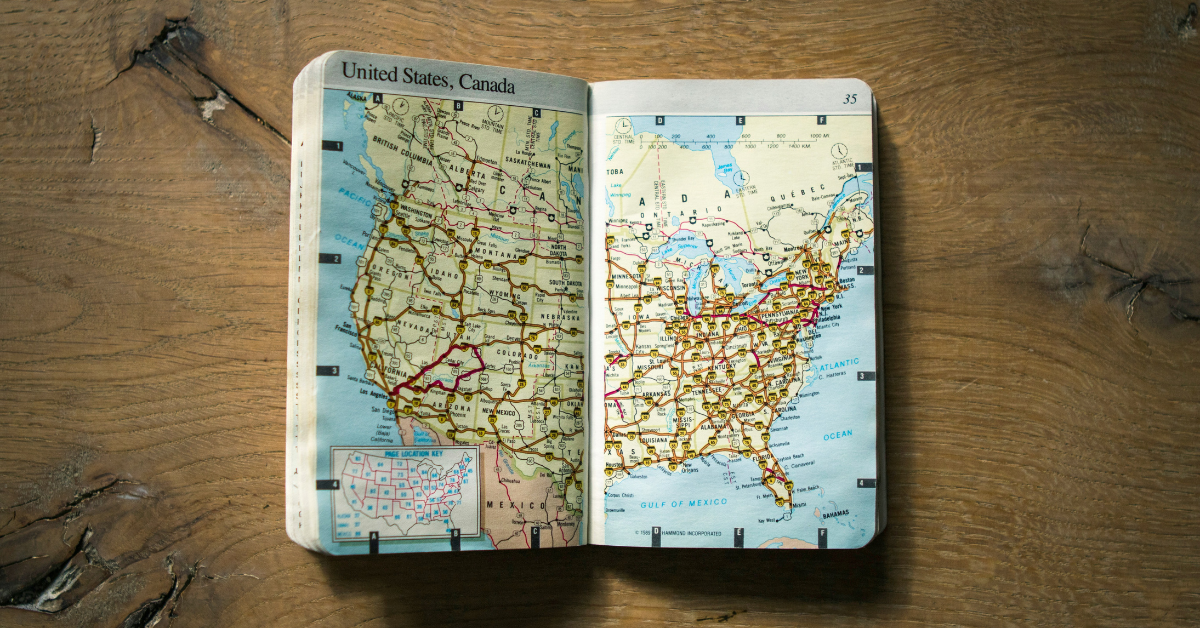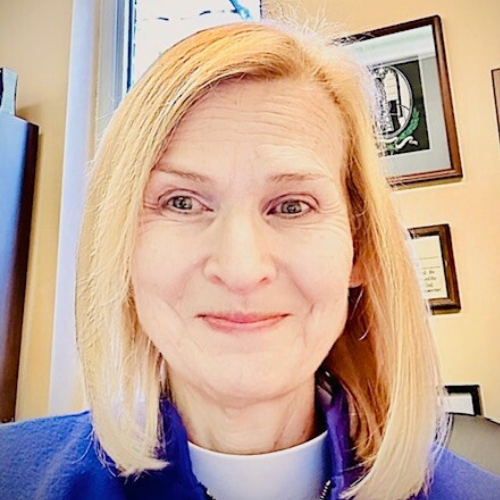My parents loved to travel. My first trip was to Canada when I was three months old! Both my mom and my dad had a love for learning about new places, meeting new people, and enjoying new experiences as a family. My grandmother would often join us, and one of my earliest travel memories is standing with her at the lighthouse in Marblehead, Ohio, and hearing her say, “Let your light so shine before others that they may see your good works and glorify your Father in heaven,” as we stood admiring the lighthouse and the beauty of Creation around us.
As followers of Jesus, we are on a faith journey. Our walk with Jesus and with other disciples serves as a compass, guiding our values, decisions, relationships, and even our time. Our faith not only gives meaning and direction to our lives but also provides insight into what to look for along the way. Journeying together strengthens our bonds and offers opportunities for growth, learning, pleasure, and joy, not just in our moments of worship, prayer, and service but also in our times of rest and leisure. How can we take our faith on the way as we vacation this summer in ways that enhance the experience rather than adding a layer of stress? How can we look for moments along the way when it feels natural to express our faith?
Travel
Travel can be exhausting, no matter the mode. Take a moment to pray before you go—for a safe journey, for a time of memory-making and closeness, for a time of openness to new things. Beginning the journey with God can set a tone for the entire experience. As you move from place to place or activity to activity on the trip, continue the prayers for openness and joy with each other.
Be open to re-direction along the way! Most of us like to have a clear sense of where we are going, how we will get there, and what we will do when we arrive, but sometimes the sweetest moments can occur in slight changes in direction. When those moments cause stress, our prayers can offer a time for re-centering and patience.
Places
One of the gifts of travel is exploring new places. Will your trip be mostly to outside spaces, such as the beach or the mountains? Will you spend time in a bustling city, in museums, or at historic sites? All of these kinds of experiences are rich with opportunities for reflection through a kind of visio divina. Visio divina is often defined as “sacred seeing.” The practice involves seeing images or scenes with openness, reverence, and an intention to connect with the holy. Any images before us—landscape, cityscape, or a piece of art—can serve as a way for us to experience God’s presence in a personal way.
God’s handiwork is easy to spot in Creation, from expansive bodies of water to high mountain peaks. In our high-tech world, we might be tempted to take a quick photo and post it to social media. Instead, first take the time to bask in God’s creativity, expressed in the views around you and in the abundance of life found in the sea, on the earth, and in the air. What colors and shapes do you notice? Are there animals and birds? How is God calling you to be active in caring for Creation?
The Bible offers wonderful verses to read and reflect upon together as you observe Creation; for example, Genesis 2:9, Psalm 8:1, John 1:3, and Job 12:7-10. Take a brief walk, and offer a prayer for the intricacies of the natural world visible to you, as well as for the gift of knowledge that helps us to understand the delicate balance of nature and its processes.
The intricacies and genius of Creation are also visible in human-made structures. If you visit a large city, take some time to observe the complexity of the buildings and the transportation systems. The gifts of many people combined to make these structures and means of travel possible, and those gifts come from the Creator. Offer a prayer of thanks to God for what you see around you and how it enables people to share the talents God has given them.
When you visit a historical site, the depth of the human experience is lifted up in powerful ways. Who was active here? What was their role? What were the issues at stake: Justice? Peace? New beginnings? How might God have been active here? How did what happened here—at this battle site, this settlement—impact future generations? If you find yourself in an art museum, you might consider the historical timeframe of the pieces. What was happening in the world? How does the art reflect that time? Who is the artist, and what might they be hoping to convey?
People
One of the gifts of travel is meeting new people—people you will likely never encounter again, but each with their own stories, perspectives, and experiences. At the art museum in my city, the docents are knowledgeable about art and have a wealth of information to share about the city, including its history, other attractions, and local restaurants. Conversations with people like these—guides, wait staff, drivers, etc.—can give texture and depth to our experiences and may even bring joy to the local people we speak with.
Travel and family time also offer opportunities for deeper conversations. Such conversations are influenced by age and life experience; for example, children and teenagers will have different perspectives on what they see as they travel than adults. Meaningful conversations can transcend these differences when everyone is open and receptive to each person sharing what they experienced during the day’s activities. Even a simple question such as “Where did you see God’s presence today?” can open some wonderful doors for conversation.
Make an effort to understand some of the history of the people who currently live or have lived in and belong to the lands you are visiting. In the United States, learning about the indigenous people who belong to the land teaches us to relate to more “images of God” amongst us.

Rest
Vacations are often a time to relax and recharge, but sometimes, the excitement of exploring new places or the pressure to make the most of the time can feel anything but restful. It is good and even necessary to take some downtime and prioritize self-care during your vacation. Finding time for physical rest is important, but other kinds of rest are vital for making the time away the best it can be.
If activity and constant motion become too much, find a peaceful spot, such as a park, a balcony, or a separate room where you can spend time alone with God. You might meditate, pray, or read scripture … or you might just sit quietly and see how the time unfolds.
Set aside time for quietness, without phones, TVs, or other distractions. Even those brief moments of sensory rest can reset us and offer some rest.
Many families include worship as part of their Sabbath rest while on vacation. Before the trip, research the area to find local churches where you might like to worship. If the area does not have many from your denomination, perhaps this is an opportunity to experience something new. If you do, you might also read a bit about the place you plan to visit so that you can be respectful of their tradition. Attending a local church service allows you to connect with other believers and experience the diversity of the Christian community.
Integrating our faith journey into our travels can enrich our experiences and open our eyes to God’s presence in new ways. May God’s Light and ours shine as we journey, illuminating the path and the beauty of Creation. Blessings on your travels and your homecomings!
Customize your own take-it-with-you card to hand out to congregation members, before summer travel is in full swing, from these prompts:
Travel: How can we prepare and set the tone?
- Pray for openness to new experiences, safety, and joy together. Repeat often.
Places: What might God be expressing to us here?
- See wherever you are with openness, reverence, and an intention to connect with the holy
- Before heading out into nature, read: Genesis 2:9, Psalm 8:1, John 1:3, and Job 12:7-10
People: How can we see the image of God in people we encounter here?
- Engage in conversation with those who work in hospitality
- Ask your family/travel group an open-ended question like “Where did you see God today?”
- Learn about the history of the people who belong to the land you are visiting
Rest: What rest and renewal is God calling us to?
- Set some healthy boundaries for how you want to spend your time, screen usage, and what will be truly restful
- Research ahead of time some churches or outdoor worship services nearby




Even if you don’t travel much, you can look around your own area and see God’s work. I love to sit and look out my window or sit in a chair outside and just watch nature in all it’s beauty. It is a good way to start the day or watch the day go to sleep in the evening.
Great point, Rhonda. Thanks for sharing your insights.